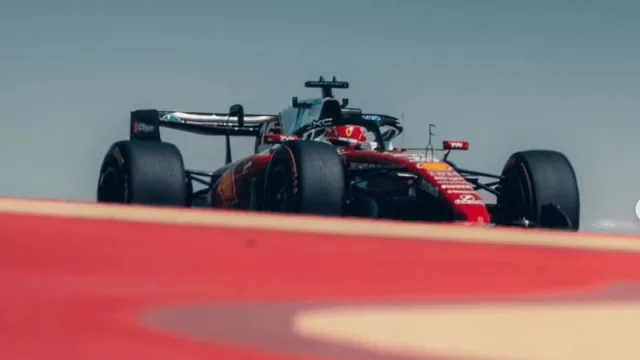And while it’s still a long way from the dizzy heights of the Premier League, success has been joyfully embraced by Wrexham’s fans and the club’s celebrity owners, actors Ryan Reynolds and Rob McElhenney.
The Hollywood-based pair bought Wrexham Association Football Club (AFC) in 2021, bringing £2 million to the table, and plenty of Californian glamour to their adopted corner of north Wales, which is now the subject of a documentary series streaming on Disney+.
But it was another of Disney’s famous productions which came to our minds when we considered this modern football fairytale: the popular cartoon Cars, in which a big star finds himself living in a small provincial town.
The star, Lightning McQueen, eventually falls in love with the town of Radiator Springs, and inspires his new neighbours to dream big. Cars tells the story of the great American dream, that anyone can make it to the top, and highlights the importance of a place and its people.
The real life version playing out in north Wales has Reynolds in the starring role, and Wrexham as Radiator Springs. But their story also illustrates some of the profound changes that are taking place across professional football – where kicking a ball around a pitch has become a lucrative industry involving marketing strategies, media partnerships and commercial opportunities.
Wrexham AFC has a long history and a loyal fan base. But of late, it has fallen upon hard times and languished in the lower reaches of the English professional leagues. At one stage in the 2000s, the club spent almost two years in administration, and in 2011 it was served with a winding-up order for not paying its taxes.
Big players
The club’s Hollywood saviour, Ryan Reynolds, arrived at a time when he was needed. And he has also proved himself to be no slouch when it comes to the business world. If his plan was to extract commercial and financial value from football through shrewd management and experience in entertainment, his record already looks pretty impressive.
Wrexham has secured promotion, attracting global attention, and new sponsorship deals. Reynolds is now even talking about building a sport franchise network and has gone from being an impassive observer of football to someone who has developed a love for the game and for Wrexham.
He and McElhenney are the stars of Welcome to Wrexham, the Disney+ series which claims the actors are “bringing some serious hope and change to a community that needs it”. Each episode is estimated to have generated around £430,000 for the club and its owners.
As a result, some of Wrexham’s success carries the hallmarks of what is termed “Disneyfication”, the creation of sentimentally compelling entertainment for mass audiences in everything from sport to nature and children’s stories. Disneyfication is often seen as being synonymous with globalisation, commercialisation and commodification, and research suggests it has some key characteristics.
The first, known as “theming” involves an institution being placed into a narrative that is mostly unrelated to its original purpose. Wrexham AFC was formed in 1864 and for most of its existence was never the subject of heart-rending digital content for a US entertainment business and two Hollywood actors. Players have gone from kicking a ball in a stadium to becoming performers in a drama that is streamed around the world.
Another component of Disneyfication is “hybrid consumption” – attracting fans and potential consumers through various commercial means. In Wrexham’s case, that started with owning a fairly large stadium with room for 10,000 spectators, and continues with more than 319,000 people watching the first episode of Welcome to Wrexham, and over 1 million followers of the club’s TikTok account.
Disneyfication also requires a focus on selling things. To that end, TikTok’s logo has appeared on Wrexham’s shirts which are a cornerstone of Wrexham’s rapidly proliferating merchandise portfolio. Visit Wrexham’s online store and you’ll even see shirts carrying the logo of Aviation Gin, an alcohol business in which Reynolds has a stake.
Football traditionalists may despair at the influence Wrexham’s owners are having on the sport and on the club, and worry that Disneyfication may now be reaching the lower leagues as well as the very pinnacle of English football. Some will worry that the Racecourse Ground is becoming more like a theme park attraction than a football stadium.
Even so, the Disneyfication of Wrexham is changing the town, in a way not dissimilar to Lightening McQueen’s influence on Radiator Springs. Visitor numbers have soared and the football club’s success is beginning to have a tangible local economic impact, adding to hotel room bookings and beer sales.
Like Disney attractions around the world, a small football club is proving capable of generating financial returns and a hint of fantasy. There is clearly a Disney version of the American dream to be had – and enjoyed – in this provincial town of north Wales.
Simon Chadwick, Professor of Sport and Geopolitical Economy, SKEMA Business School and Paul Widdop, Reader of Sport Business, Manchester Metropolitan University
This article is republished from The Conversation under a Creative Commons license. Read the original article.
![]()












Tu opinión enriquece este artículo: